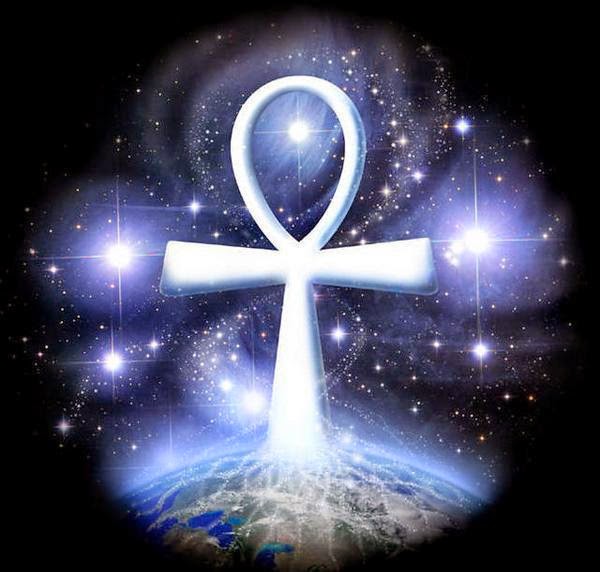
KW_內在小孩是小我的一個面向嗎?
![]() 專欄版編/發表於 2010 02/06, 00:08
專欄版編/發表於 2010 02/06, 00:08
Q #757 問:「內在小孩」是不是屬於小我的一個面向?療癒內在小孩真的有用嗎?還是會使小我的煙幕更濃厚?
答:以《奇蹟課程》的角度來看,心理治療中所謂的「內在小孩」確實是小我的一部分。世間萬物的價值都取決於我們如何使用它們,「內在小孩」這一概念可能使人更深地陷入童年的創傷,通常也確實如此。現在,大多數人的確感到自己在更加無助的童年时期不止受到了不公平的對待,甚至慘遭虐待;我們還認定,這些過去經歷的傷疤一直伴隨著我們,使我們感到不值得被愛,讓我們無法發揮自己的全部潛能。《課程》並不要求我們否認這些經歷和認知。
針對「內在小孩」進行心理治療可能鼓勵一個人培養自己的內在小孩,給自己以童年時期未曾從成人那裡(尤其是父母的角色)得到的支持和愛。這樣,這個人開始為自己的生活「負責」,不再覺得繼續演出受害劇本有何罪過。有一點可以肯定,以世界的運作法則來看,療癒「內在小孩」非常有用。不過,如果只停留在這個基礎上,而不再向前推進,以《課程》的觀點看,我們可能只是在助長小我「把受害和迫害角色當真」的企圖,因此可能更難觸及我們心中隱藏的「痛苦和無價值感」的真正源頭(T.27.VII.1 , 2,3,4,5, 6,7,8,9)。
另一方面,使用「內在小孩」這一概念來識别人們内在的「受害機制」(自己内在的受害傾向或心態),以此作為揭開小我防衛措施的第一步,是非常有用的,尤其對那些傾向於否定負面情緒及美化過去,不願面對潛意識裡對家人和其他人的極端負面情緒的人。如《課程》所言,我們若想要得到任何真正的療癒,得有能力辨認出我們的「視自己為受害者」的種種花招。只有這樣,我們才能發現,原來這些負面感受對我們有(如此)強大的吸引力。它們乃是罪咎的護身符,教我們在別人(而非自己)身上看到罪咎。這種投射一直是小我在(建立)所有關係中的目的。(T.19.IV.A.10,11,12,13)。
因此,如果我們學習親近受傷的「內在小孩」,並以此作為我們寬恕進程的第一步,而且「只是」第一步的話,這個觀念會帶給我們很大幫助。因為最終我們會發現:真正需要的只是寬恕我們自己,因為只有我們自己的決定(而非他人的決定)才能剝奪我們的愛。如此,我們就可以與我們內在真正的「神聖孩童」相聯結!(W.pI.182)
Q #757: Is the “inner child” an aspect of the ego's composition? Is healing the inner child actually helpful or just more of the ego's smokescreen?
A: The inner child, as typically spoken of and worked with in some therapeutic contexts, would be an aspect of the ego from the perspective of A Course in Miracles . As with everything, its helpfulness as a concept depends on how it is used. It may be used, and typically is, to reinforce the perception that one has been victimized as a child.Now it is true that most of us in various ways feel we were treated unfairly, perhaps even abused, when we were younger and more helpless, and may also feel we carry the scars of those past experiences into our present lives, preventing us from feeling worthy of love and achieving our full potential now. And the Course would not want us to deny that these are our experiences and perceptions.
Therapeutic interventions based on the concept of the inner child may then encourage the individual to nurture his or her inner child, providing oneself the adult support and love that was not provided by the adult figures, typically the parents, during childhood. In that way, one can now take responsibility for one's life and not feel condemned to continue playing out the victim scripts in the present. And certainly, from the perspective of functioning in the world, this can all be very helpful. However, if we go no further than this with the idea, from the Course's perspective we would merely be serving the ego's purpose of keeping the roles of victim and victimizer real and never getting to the real source of the pain and feelings of unworthiness in the mind (T.27.VII.1 , 2,3,4,5, 6,7,8,9) .
On the other hand, using the concept of the inner child to identify the victim dynamic within oneself can be a very helpful first step in uncovering the ego's defenses, especially for anyone who may have a tendency to deny difficult feelings and sugarcoat the past, out of guilt and fear over confronting very negative repressed feelings towards family and others.For any genuine healing, as the Course speaks of it, to occur, we need to be able to acknowledge the many ways in which we feel we have been and are being victimized, for only then can we begin to identify the strong attraction we in fact have to such feelings, for they are the great preservers of guilt, seen in someone other than ourselves. And this projection is always the ego's intent in every relationship (T.19.IV.A.10,11,12,13) .
And so, if we see getting in touch with our victimized inner child as a necessary first step in the forgiveness process, but only a first step — since in the end it is only ourselves we need to forgive for wanting to believe we can be deprived of love by anything other than our own choice (T.4.IV.3:3) — the concept can be of great value. For then it will be possible to get in touch with our real inner Child (W.pI.182) !
紅雲/譯


0 則留言